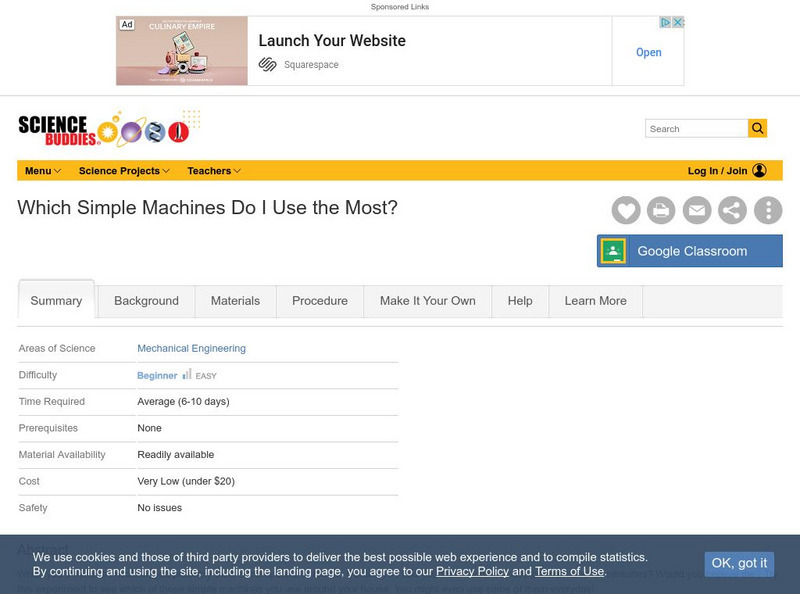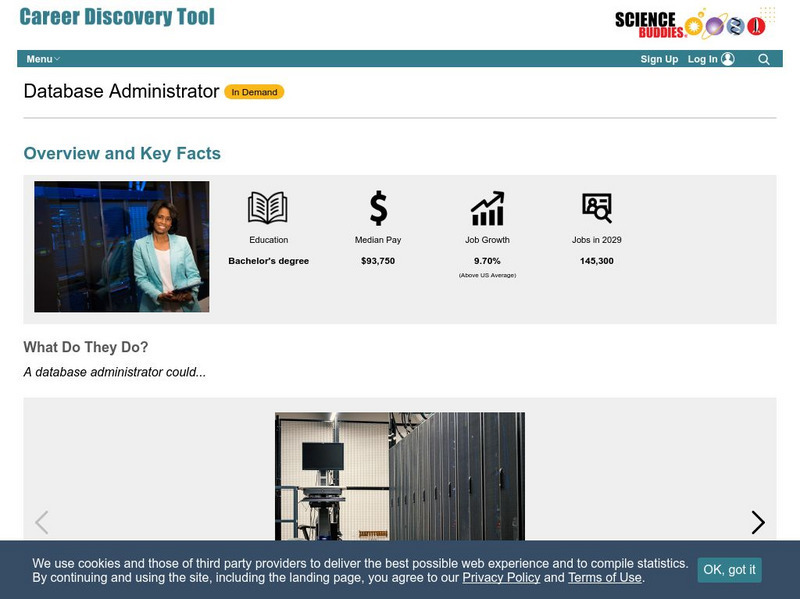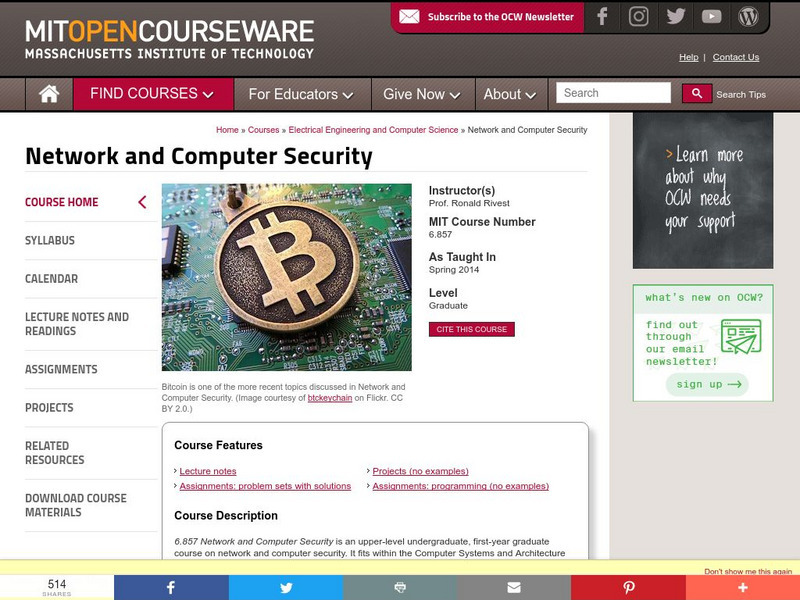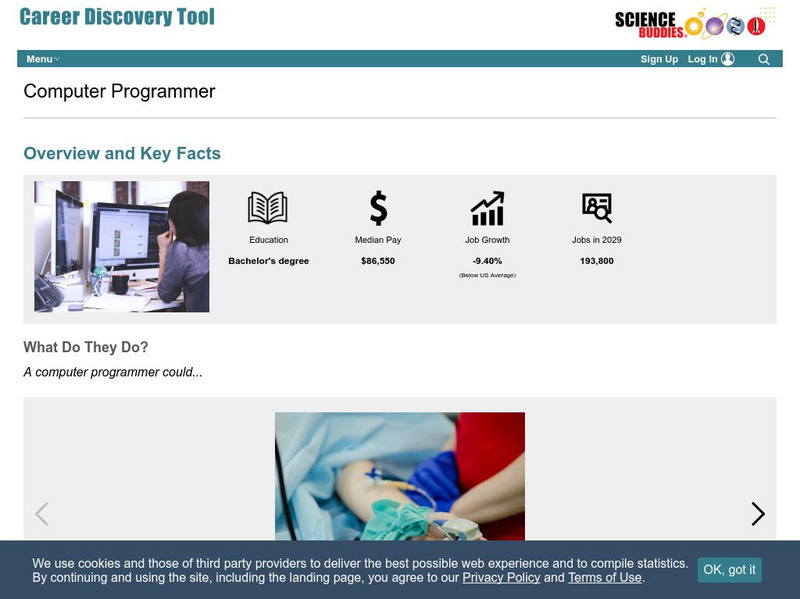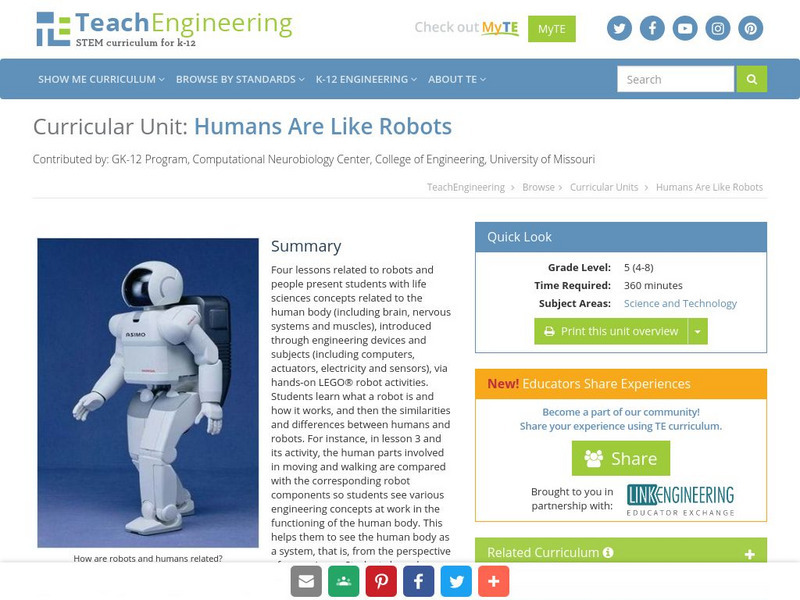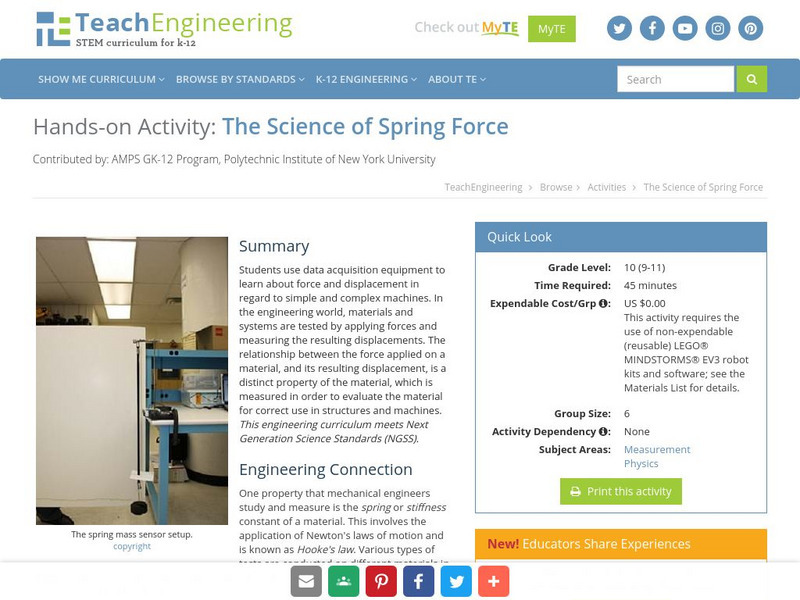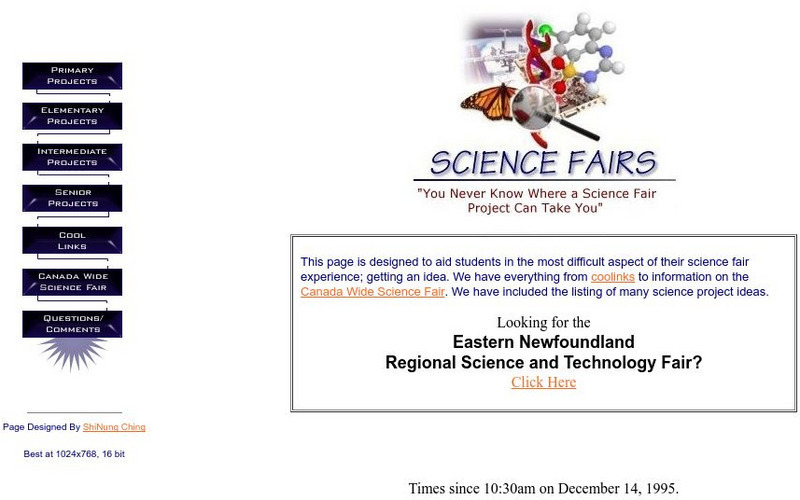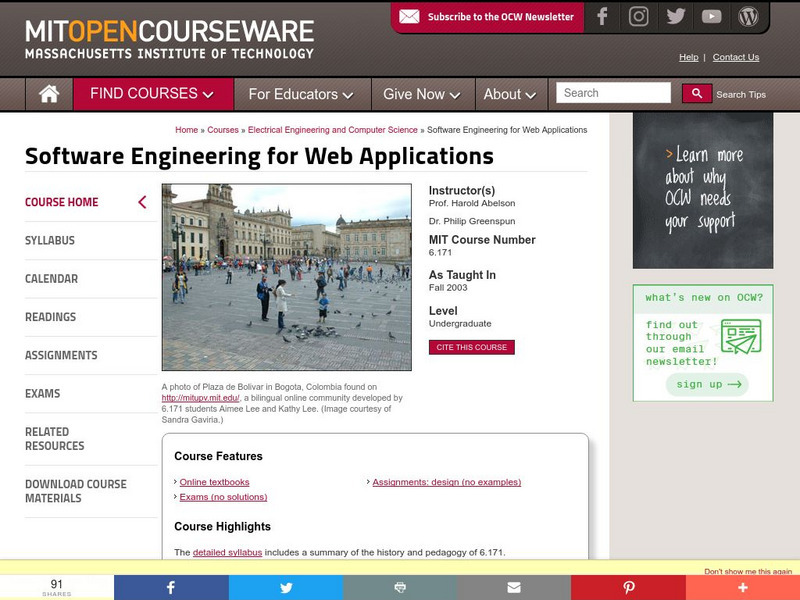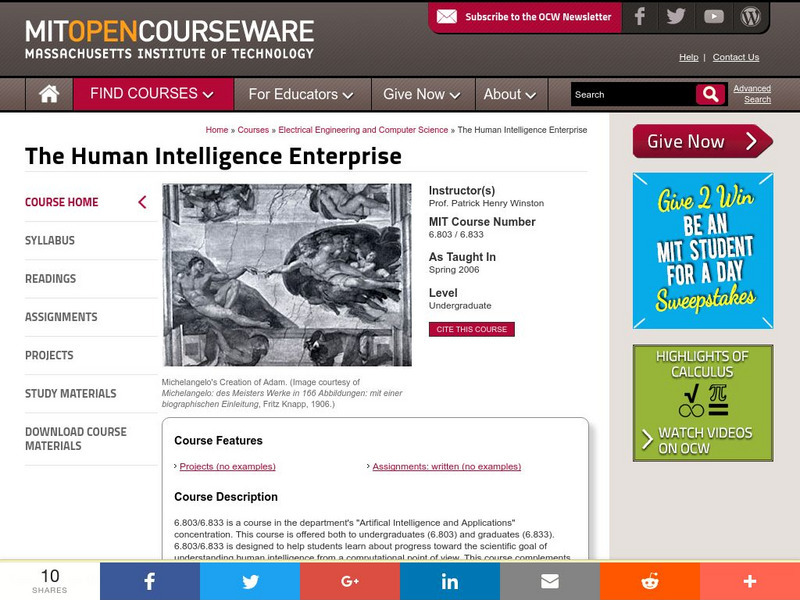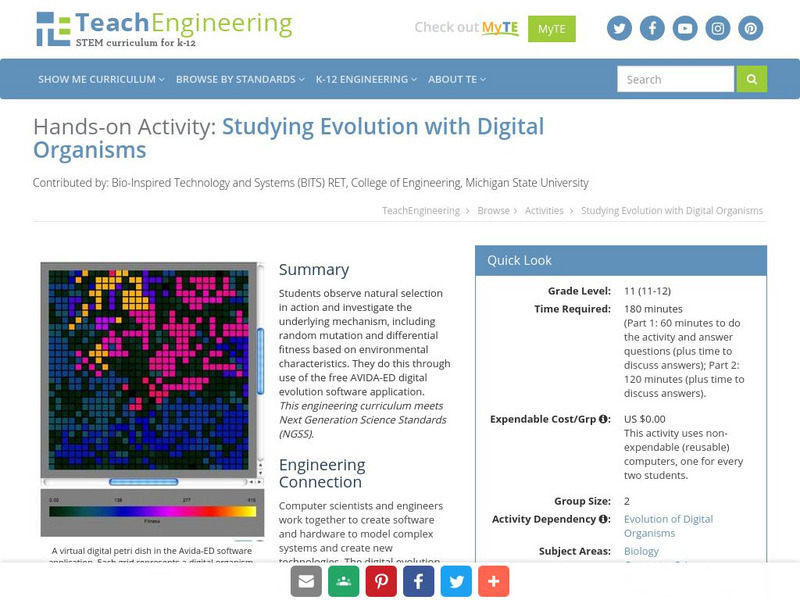Science Buddies
Science Buddies: Which Simple Machines Do I Use the Most?
When you think of a machine, you probably think of computers or robots. Try this experiment to see how simple machines are used everyday around your house.
Science Museum, London
Science Museum: Online Stuff: Babbage
Charles Babbage is regarded as the first computer pioneer and originated the concept of a programmable computer. This biography details his accomplishments as a mathematician, philosopher, inventor and mechanical engineer
National Science Foundation
National Science Foundation: Chemistry & Materials: Creating Molecules and Materials by Design
Describes the progress being made in materials engineering, so that one day in the not too distant future scientists will easily be able to use a computer to design materials that meet any required properties.
Science Buddies
Science Buddies: Career Profile: Database Administrator
With so much data gathered on the computer, someone needs to be able to organize it. That falls to the database administrator. This Science Buddies site lays out the requirements needed to become a database administrator , as well as the...
Massachusetts Institute of Technology
Mit: Open Course Ware: Introduction to Software Engineering in Java
This MIT course is an introduction to Java programming and software engineering. The focus is on developing high quality software that solves real problems.
Massachusetts Institute of Technology
Mit: Open Course Ware: Network and Computer Security
This MIT course on network and computer security covers topics such as security in multi-user distributed systems, cryptography, authentication, intrusion detection, and many other security topics.
Science Buddies
Science Buddies: Career Profile: Semiconductor Processor
Semiconductors are integral to all computers. Manufacturing these semiconductors and assuring that they work properly is the job of the semiconductor processor. This Science Buddies site lays out the requirements needed for this career,...
Science Buddies
Science Buddies: Career Profile: Software Quality Assurance Engineer and Tester
If you like to have your computer software work perfectly, it's because of the software qualitiy assurance engineer and tester that makes that happen. Read the career profile of the software engineer and the education requirements for...
Science Buddies
Science Buddies: Career Profile: Computer Programmer
Computers are able to work only because computer programmers tell them what to do. This Science Buddies site lays out the requirements needed to become a computer programmer, as well as the education and job description. Included are...
Massachusetts Institute of Technology
Mit: Open Course Ware: Courses: Electrical Engineering: Circuits and Electronics
College-level electrical engineering course highlighting circuits and electronics. This course introduces the fundamentals of the lumped circuit abstraction. Course features include video lectures, suggested readings, labs, lecture...
US Department of Labor
Bureau of Labor Statistics: Architectural and Engineering Managers
Read about the work of engineering, science and computer systems managers, their training requirements and the prospects for these occupations.
Google Cultural Institute
Google Cultural Institute: Women in Science, Technology, Engineering, and Math
Explore the historic reasons women are underrepresented in science, technology, engineering, and mathematics today.
Science Buddies
Science Buddies: The Unconstrained Truth About Constrained Layer Damping
This science fair project shows you how to transform a noisy piece of metal into a sound-muffling constrained-layer damper. You will record the sound of a controlled impact on a piece of metal with a microphone, a computer, and some free...
Science Buddies
Science Buddies: Career Profile: Economist
Economists deal with the distribution of resources and how that distribution affects the economy. This lays out the requirements needed to become an economist, as well as the education and job description. Included are interviews with...
TeachEngineering
Teach Engineering: Graphing the Spread of Disease
Students simulate disease transmission by collecting data based on their proximity to other students. One option for measuring proximity is by having Bluetooth devices "discover" each other. After data is collected, students apply graph...
TeachEngineering
Teach Engineering: Our Bodies Have Computers and Sensors
Students learn about the human body's system components, specifically its sensory systems, nervous system and brain, while comparing them to robot system components, such as sensors and computers. The unit's life sciences-to-engineering...
TeachEngineering
Teach Engineering: Humans Are Like Robots
Four lessons related to robots and people present students with life sciences concepts related to the human body (including brain, nervous systems and muscles), introduced through engineering devices and subjects (including computers,...
TeachEngineering
Teach Engineering: The Science of Spring Force
Students use data acquisition equipment to learn about force and displacement in regard to simple and complex machines. In the engineering world, materials and systems are tested by applying forces and measuring the resulting...
BBC
Bbc: Science & Nature: Robots
Learn about different kinds of robots as you build them in five interactive simulations.
Other
Cdli: Science Fairs Homepage
At this site from the Center for Distance Learning and Innovation there's a monstrous listing of possible science fair projects. You can choose from primary (grades 1-4), elementary (grades 4-6), intermediate (grades 7-9), or senior...
NBC
Science of Innovation: Self Driving Cars
This tutorial includes a video filmed at Google headquarters in Mountain View, California, computer scientist Sebastian Thrun and his team of software engineers are creating a fleet of self-driving cars. His innovative approach to...
Massachusetts Institute of Technology
Mit: Open Course Ware: Software Engineering for Web Applications
This course gives students some experience in dealing with the challenges that are unique to web applications, such as concurrency and security risks.
Massachusetts Institute of Technology
Mit: Open Course Ware: The Human Intelligence Enterprise
This course is part of the artificial intelligence studies at MIT. The course is designed to help students learn about the scientific goal of understanding human intelligence from a computational point of view.
TeachEngineering
Teach Engineering: Studying Evolution With Digital Organisms
Students observe natural selection in action and investigate the underlying mechanism, including random mutation and differential fitness based on environmental characteristics. They do this through use of the free AVIDA-ED digital...


